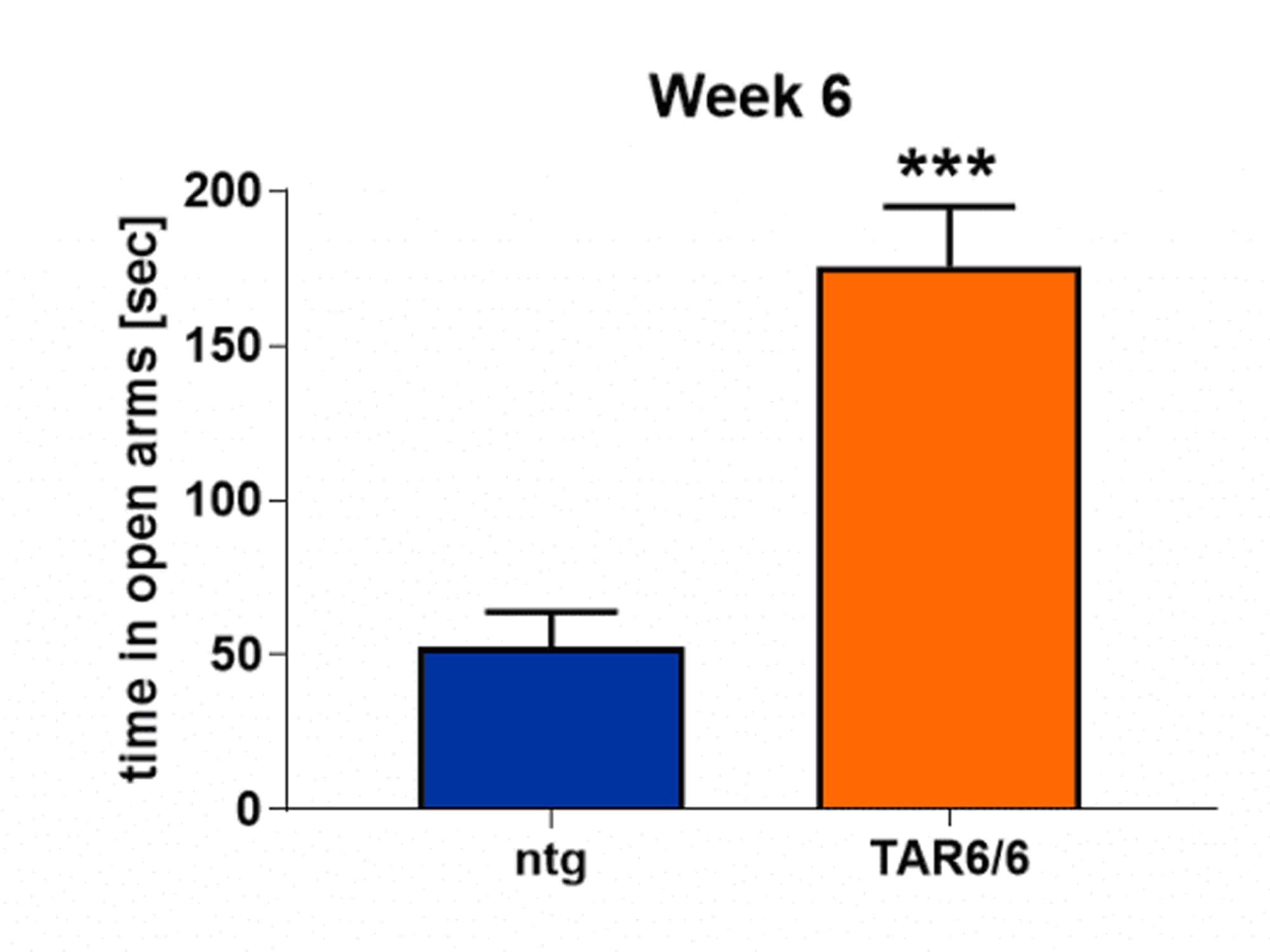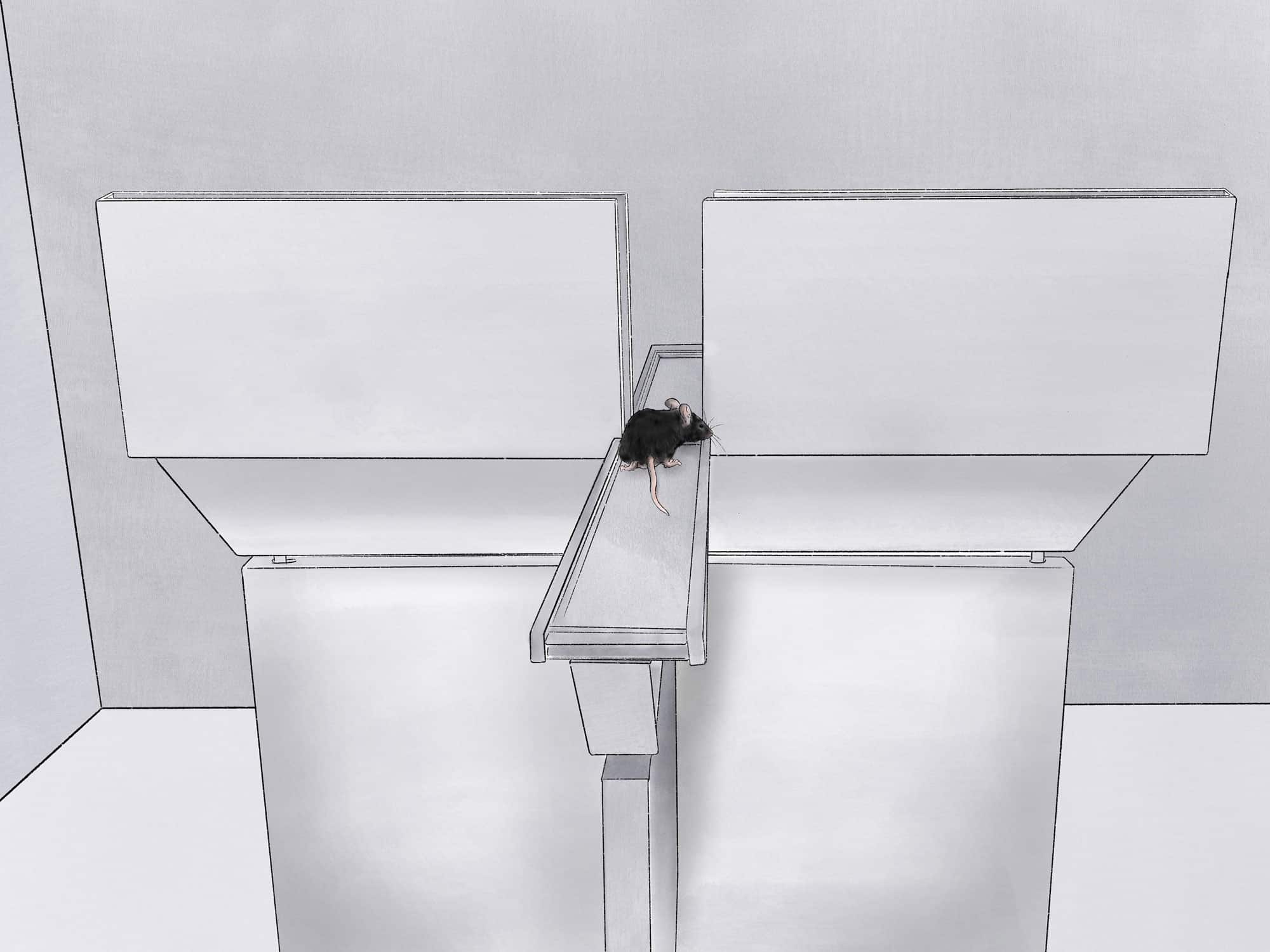Anxiety disorders are the most prevalent mental disorders. The Elevated Plus Maze (EPM) is currently one of the most frequently used tests to study anxiety-related behavior in small rodents.
More specifically, the test is based on the innate aversion of rodents to open spaces and height. The EPM is considered to evaluate the innate anxiety-like behavior. The apparatus consists of an elevated platform with two open arms that are lighted and without walls, and two closed sheltered arms with walls, opposing each other. On the test day, the animal is given at least 30 minutes to habituate to the testing environment and is then placed in the center of the EPM apparatus facing one of the open arms. The behavior of the tested animal is recorded for 5 minutes with a fully automated system and parameters relevant to anxiety-related behavior, such as time spent in the open and in the closed arms, number of visits in the open and closed arms as well as the percentage of open arm entries, are calculated.
The EPM is a well-established behavioral paradigm aiming to detect altered anxiety-related responses in response to genetical or pharmacological manipulations. It is frequently employed to screen compounds with potential anxiolytic activity and can measure responses to both acute and chronic pharmacological treatment. Anxiety disorders often co-exist with other mental disorders, such as depression and autism spectrum disorders, as well as with neurodegenerative diseases, including Alzheimer’s disease. The EPM is often followed by RotaRod and open field test to exclude motor deficits as a potential confounding factor.


Time spent in the open arms of the Elevated plus maze of 6-weeks old TDP-43 transgenic TAR6/6 mice compared to non-transgenic littermates (ntg). n = 5 – 6; Mean + SEM. Mann-Whitney U-test. ***p<0.001.
